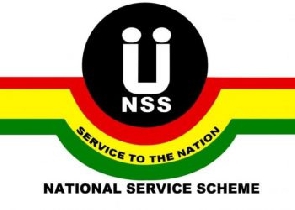National Service Scheme (NSS) is a government initiative aimed at engaging Ghanaian youth in various forms of community service for one year. Participants are expected to serve in different sectors such as health, education, agriculture, and other areas that contribute to the development of the nation.
However, recent reports have revealed that the NSS has failed to make payments to personnel for several months, leaving many struggling to survive amid the current economic challenges facing the country.
The inability of the NSS to pay its personnel on time has had a significant impact on those serving in regions like Tamale, Kumasi, and Accra. These individuals depend on their monthly stipends to cover basic needs such as food, transportation, and accommodation. Without this financial support, many are finding it difficult to make ends meet and are facing severe hardships in their day-to-day lives.
One major consequence of the delayed payments is the strain it puts on the mental and emotional well-being of NSS personnel. The stress of not knowing when or if they will receive their stipends can lead to anxiety, depression, and other mental health issues. This can negatively impact their ability to perform their duties effectively and can have long-term consequences on their overall well-being.
Additionally, the lack of financial support from the NSS can hinder personnel from fully committing to their service responsibilities. Many may be forced to take on additional jobs or side hustles to make ends meet, which can detract from the time and energy they can dedicate to their NSS duties. This can result in decreased productivity, poor job performance, and ultimately, a negative impact on the communities they are serving.
The economic hardships faced by NSS personnel in Tamale, Kumasi, and Accra are further exacerbated by the current state of the Ghanaian economy. Rising inflation, high unemployment rates, and the impact of the COVID-19 pandemic have made it even more challenging for individuals to secure stable employment and financial stability. Without the financial support from the NSS, many individuals are left in a precarious position, struggling to survive in an increasingly difficult economic climate.
The NSS needs to recognize the critical role that its personnel play in supporting the development of the nation and to prioritize their well-being and financial security. The failure to make timely payments not only impacts the individuals directly involved but also has wider implications for the effectiveness and success of the NSS as a whole.
To fulfill its mission of engaging youth in community service and promoting national development, the NSS must ensure that its personnel are adequately supported and compensated for their contributions.
Addressing the Issue of Delayed Payments
Delayed payments to personnel in the NSS have been a long-standing issue that needs to be urgently addressed. It not only undermines the morale and motivation of the personnel but also raises questions about the NSS’s commitment to its workforce. To remedy this situation, the NSS should adopt the following strategic measures:
1. Improve Financial Management: One of the main reasons for delayed payments is poor financial management within the NSS. The organization should invest in modern financial management systems and procedures to ensure timely and accurate payment of personnel. This includes implementing automated payment systems, regular audits, and financial training for staff members.
2. Create a Transparent Payment System: The NSS should create a transparent payment system that clearly outlines the process and schedule for personnel payments. This will help personnel understand when and how they will be paid, and will also allow them to track their payments and raise concerns if there are any delays.
3. Establish Communication Channels: Communication is key in addressing the issue of delayed payments. The NSS should establish clear and effective communication channels through which personnel can raise concerns about delayed payments and receive updates on when they can expect to be paid. This will help to create trust and collaboration between the NSS and its personnel.
4. Set Clear Deadlines: The NSS should set clear deadlines for the payment of personnel and ensure that these deadlines are met. This will help to create a sense of accountability within the organization and demonstrate its commitment to its workforce.
5. Provide Support Services: In some cases, personnel may face financial difficulties due to delayed payments. The NSS should provide support services such as financial counseling, emergency loans, or advance payments to help personnel cope with financial challenges while waiting for their payments.
Conclusion
In conclusion, the issue of delayed payments to personnel in the NSS is a serious concern that needs to be addressed urgently. By adopting the strategic measures outlined above, the NSS can improve its financial management, create a transparent payment system, establish effective communication channels, set clear deadlines, and provide support services to address the issue of delayed payments. This will not only improve the morale and motivation of the personnel but also enhance the effectiveness and credibility of the NSS in fulfilling its mandate.
Opinions of Saturday, 23 March 2024
Columnist: Aaron Babako Korkormissah















